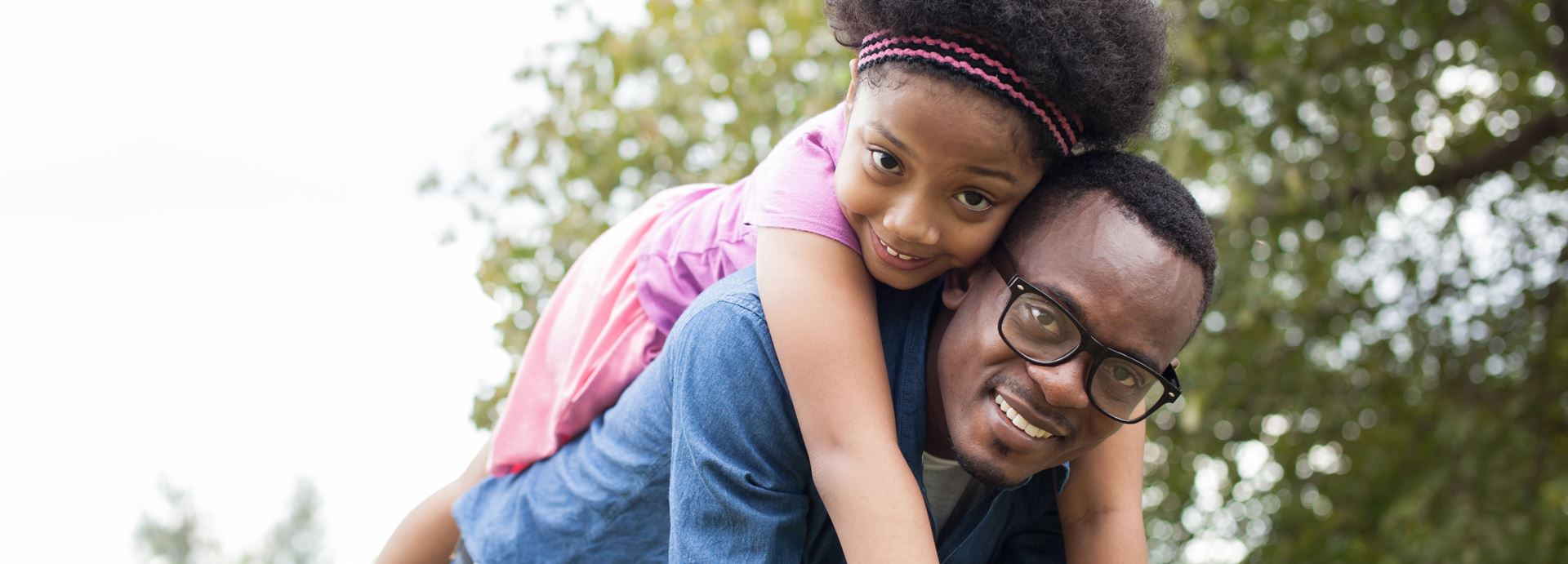Why fostering is a great career for single people
Being a single foster parent is a rich and rewarding career path. You’re giving children in care the chance to grow and heal from their pasts while enabling yourself to develop professionally too.
Many children often benefit from being in a foster home with a solo carer, especially if they need extra support and one-on-one time.
Fostering is more than just a job though – it's a passion, and we welcome anybody who has this passion to start thinking about fostering. It doesn’t matter if you’re female, male, straight, gay, in your 30s or in your 70s. It also doesn’t matter if you’re divorced or have children from a previous relationship.
The modern foster family looks very different these days. There is such an abundance of diversity in foster care, and that extends to family dynamics and setups. All that truly matters is that you’ve got a desire to help vulnerable kids reach their full potential, and being single doesn't affect this.
Considerations for single foster parents
Being a foster parent is a very hands-on role, so if you’re single, you’ll need to wear many hats and juggle different tasks. That’s why it’s important you consider the following...
Sarah's fostering story
Sarah recounts her experience as an Orange Grove foster parent and how the children who she's welcomed into her home have become a part of her family for life.
What is a support network?
A single foster parent’s personal support network normally consists of friends and family members, but it can also include local groups in the community. They’re important as they provide practical and emotional support for foster parents, especially those who don’t have a partner or spouse to lean on.

The importance of a foster parent support network for single people
Looking after children in any capacity can present challenges, but more so with those in the care system. They’ve likely had a very difficult home life, with neglect and abuse being the main reasons young people are placed into care.
When you foster as a single parent, your personal foster parent support circles will play a huge part in achieving positive outcomes for the children you look after.
How personal support networks help single foster parents
Practical support
There might be times where a foster parent has an important medical appointment or personal commitment that means the child in their care needs childminding.
In a situation like this, a foster parent would call on their Back Up Carers. These are relatives or friends who have been appointed to – and agreed to – undertake informal caregiving to a young person. The child’s care plan will include these agreements, and it allows approved individuals to provide care for a short period of time.
There's no formal assessment process for Back Up Carers and they don’t go to Panel, but they provide vital care to foster parents, especially single ones. Of course, safety will always be our number one priority, so the conditions of any informal caregiving need to be in the child’s best interests.
Practical support can also be someone in your circle being prepared to give you a lift if your usual mode of transport isn’t available or running a few errands for you if you’re strapped for time.
Emotional support
Single foster parents might need to lean on their personal support networks for challenging behaviour and the emotional toll this can take.
Sadly, most children will have experienced some form of trauma prior to being placed into care, and they can struggle to manage their emotions and behaviour because of this. They are hurt and confused, and possibly missing members of their birth family. A foster parent’s job is to make them feel safe and secure, but also to help them heal.
It takes a lot of patience, especially as they might put up defensive walls. Sometimes, all that's needed after a difficult day is to get things off your chest, which is why single foster parents need to have someone they can reach out to, even if it’s just picking up the phone or responding to a text.
What a single foster parent’s support network could look like
The obvious places to look for support in your personal circles are close friends and family, but great support can be found in other places too. Here’s an idea of what your personal foster parent support system could look like:
- Friends and family
- Other foster parents you meet through your foster agency
- Close neighbours
- Work colleagues
- Community groups, such as the Church
- People from clubs you attend, such as sports or craft clubs
- Online support groups, including social media sites
7 tips for creating a foster parent support network
When it comes to fostering, you can’t - and you shouldn’t have to – do it alone. Even those in relationships have to work hard to establish order and routine. That's why as a single parent, you’ll have to plan from the get-go about the support you’ll need along the way.
Here are 7 ways to create a support system so you can prioritise your young person’s wellbeing and progress.
1. Do not be afraid to ask for help
Sometimes, this can feel like the hardest thing. Just remember, it’s not a sign of weakness, it’s actually a sign of strength!
If you’re fiercely independent and used to depending on yourself for things to get done, start to unlearn this behaviour by accepting small tokens of help when they’re offered. That way, you’ll start to feel more confident in asking for help directly.
Your friends and family will understand your situation, and people generally enjoy helping others anyway.
2. Be specific about your support requests
While asking for help is one thing, you need to be clear about what it is you’re going to want from people as a single foster parent.
A lot of people say they will be there for you, but when you ask them to do something that lies outside of what they were expecting, this is when things can fall down.
Be upfront and ask for specific things so you can work out who will form part of your foster parent support system. Specific requests could be:
- “Can you come round on Thursday evenings while my young person is doing an extra-curricular activity to help me clean the house?”
- “Can you commit to childminding once a month to allow me to do something social with friends?”
- “Can you pick up my grocery shopping on Saturday afternoons while I go for a run or take a long bath?”
3. Find support in other groups and communities
We appreciate it’s a lot harder to make friends as adults, but if you engage in activities where you’re regularly interacting with the same people, you might strike up some meaningful friendships.
You could commit to regular voluntary work at a soup kitchen or scouts club, join a book club or go to Pilates, Zumba or yoga at your local gym. These new friends might be keen to help you and could become part of your personal support network over time.
4. Lean on your foster agency
At Orange Grove, we hold regular events for foster families in our community to connect, share experiences and offer guidance to each other.
Take advantage of these opportunities to bond with other single foster parents and create a culture of support.
5. Be prepared for your current social circles to change
It’s natural to see relationships evolve or fizzle when people's circumstances change, and becoming a foster parent is certainly a big life change. Just make sure you’re realistic with your expectations of people, and be flexible where necessary to preserve precious relationships.
6. Seek out role models for your young person
Someone’s gender doesn’t determine if they’re a good carer or not. Both single females and single males make exceptional foster parents. However, it can be beneficial for children to grow up around different people and have role models of the same and opposite sex.
7. Look after yourself too!
Last but certainly not least, take care of yourself too! You need to stay healthy and treat yourself with the kindness you show others.
It might feel more natural to take care of other people, but looking after yourself puts you in a better position to look after vulnerable young people.
It can be emotionally taxing to take on the heartache of a child who has experienced trauma, so remember to consider yourself a critical part of your support network too. Schedule self-care activities into your plan as you would a doctor’s appointment, and get your support network to support you too.
Foster parent support from Orange Grove
Fostering as a single person doesn’t mean fostering alone. When you foster with Orange Grove, you’ll receive extensive support in each stage of your fostering journey and beyond.
We're committed to understanding your needs and ensuring you have access to a wide range of people, 24/7. This not only enables you to achieve positive outcomes for the children in your care, but for you to grow as a person and as a foster parent.
You might be interested in...

Types of fostering
There are many different types of foster care placements, including long and short term, respite, parent and child and more.
Read More
Allowance calculator
Try our fostering allowance calculator today to find out how much you could receive from fostering.
Read More
Why choose us
24/7 local support, Excellent ongoing training and competitive allowances are just a few of the reasons why you should choose us for your fostering journey.
Read MoreFrequently asked questions
How does fostering work?
The ultimate goal of fostering is to improve the outcomes for children, so they can go on to lead healthy, happy and fulfilling lives.
To achieve this, foster care providers, such as Orange Grove, recruit, train and reward a diverse team of passionate individuals who open their homes to children in need. And we’re always on the lookout for people interested in becoming a foster parent.
When a child enters care, they will have their needs professionally assessed and included within their personal care plan. We work closely with local authorities to find a foster parent who will be able to meet these needs and care for them for as long or as little as required.
Foster parents may care for a child for a night or two, several months or years, or even on a long-term basis until the child turns 18.
What's the difference between fostering and adoption?
There are some key differences between fostering and adoption. The main difference is around legal responsibility for the child; when you foster a child, the legal responsibility often remains with the birth parents or the local authority in some cases, however, you become the legal guardian when adopting.
Other key differences include;
- Length of time you'll care for a child - when fostering, you can care for a child for as little as a day or two, and up to 18 years until they reach independence. With adoption, you'll care for the child as you would your own birth children and they'll be part of your family forever.
- Age of children - Children who are looking to be adopted are generally younger (under 6), whereas with fostering, the young person is likely to be over 6 or in foster care with siblings.
- Allowances - foster parents receive a weekly fostering allowance to cover the cost of caring for a child and provides them with a professional fee. This financial package is not available to adoptive parents.
Do I need any experience to become a foster parent?
Previous experience with children, either in a professional or personal capacity, is beneficial but it's absolutely not essential.
Our foster parent training programme will provide you with all the skills and knowledge you need to work with children in foster care right from the get-go. Plus, you'll have your very own supervising social worker, a family support worker and regional manager by your side, offering expert guidance and ongoing support.
Do I need to have a spare room to foster?
Yes - a spare bedroom is essential and will need to be large enough to hold a single bed, a wardrobe and a small desk.
Learn more about the requirements of a spare bedroom and why it's important that children in care have their own space below.
Please make sure you read our terms and conditions because you're agreeing to them by submitting an enquiry. It's also worth reading our privacy policy and cookies policy so you understand how we collect and use your personal data.
Can't find what you're looking for?
By phone
One of our team is available to talk to you over the phone to answer any of your fostering queries.
Enquire online
You can get in touch by filling out our online enquiry form with any queries that you may have.
Your local office
We have local teams covering most of England. Find your local office today.
